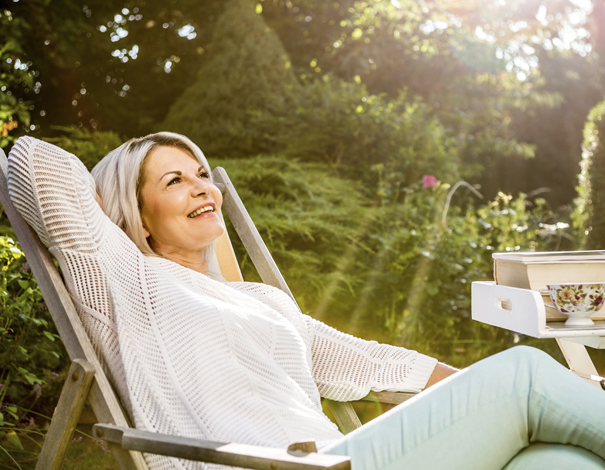Sunstroke: when heat stroke can make you sick
What is the definition of sunstroke (heat stroke)?
The human body has a thermoregulation system that helps maintain body temperature at around 36°C. During episodes of stifling heat, this system triggers various mechanisms, like sweating, to prevent body temperature from rising too high.
In the elderly and young children, their thermoregulation system is not as efficient, meaning these two groups are at greater risk of overheating during periods of intense heat. In other cases, it may be a disease or a particular medication the person is taking that interferes with the body’s cooling mechanisms.
People who are in good health are not immune from heat-related illnesses either, especially if they are exerting considerable effort while outdoors (for example those exercising outside or gardening, and seasonal or construction workers).

Recognize the signs and symptoms of sunstroke
Some symptoms of heat exhaustion can occur before the onset of heatstroke.
- Excessive thirst
- Dizziness or fainting
- Muscle cramps
- Skin rash
- Excessive sweating
- Rapid breathing and heart rate
- Nausea or vomiting
- Headache
- Less and/or darker urine
At this stage, it is important to cool the person off, for example, by applying a cold washcloth on their skin and giving them something to drink. Be careful of cold showers, as they could cause thermal shocks.
If no action is taken, the situation can rapidly develop into heatstroke (sunstroke).
Heat stroke symptoms
- High body temperature (40°C or more)
- Lack of sweating
- Red and very hot skin
- Confusion, loss of coordination
- Dizziness or fainting
Heatstroke is an emergency situation! Call 911 immediately if you notice signs of heat stroke and follow the instructions you are given until emergency responders arrive on the scene (e.g., apply cold compresses to the skin and fan air over the person as a temporary heat stroke treatment).
How to prevent the risk of sunstroke?
The best prevention is proper preparation and the right information. If your home is not air-conditioned, make sure you have access during heatwaves to a cool, air-conditioned place such as a public space. Fans may help provide some degree of relief from the heat. Never neglect sun protection either!
It is important to stay well hydrated during periods of intense heat by drinking regularly, ideally cold water.
Other ways to keep cool during heatwaves include taking a cool shower or bath, and wearing lightweight, loose-fitting clothing.
Consult your pharmacist to check whether any medication you are taking could make you more sensitive to the heat or dehydration, which can lead to an increased risk of heatstroke. They will tell you if you need to take any special precautions.
Keep an eye on—and visit or call—your vulnerable friends or family members during heatwaves. If you have concerns, consult a health professional right away. If you have any questions about sun protection, consult your beauty advisor or your pharmacist. They are there for you.
The pharmacy services presented in this section are offered by pharmacist owners who are affiliated with Uniprix. The pharmacists are solely responsible for the professional activities carried out during the practice of pharmacy. These services are offered in participating pharmacies only. Certain fees and conditions may apply.
* The information contained herein is provided for informational purposes only and is not intended to provide complete information on the subject matter or to replace the advice of a health professional. This information does not constitute medical consultation, diagnosis or opinion and should not be interpreted as such. Please consult your health care provider if you have any questions about your health, medications or treatment.



